The Department of Defence has agreed to pay a $22 million settlement to a class action by the Wreck Bay community whose cultural practices have been devastated by a toxic 'forever chemicals' on their traditional land.
Subscribe now for unlimited access.
$0/
(min cost $0)
or signup to continue reading
The historic settlement was announced at Sydney's Federal Court on Thursday - days before the Wreck Bay Aboriginal Community Council's class action was set to go to trial - with up to 1000 people eligible to share the compensation.
The court heard 700 eligible community members have so far registered for a share in the funds.
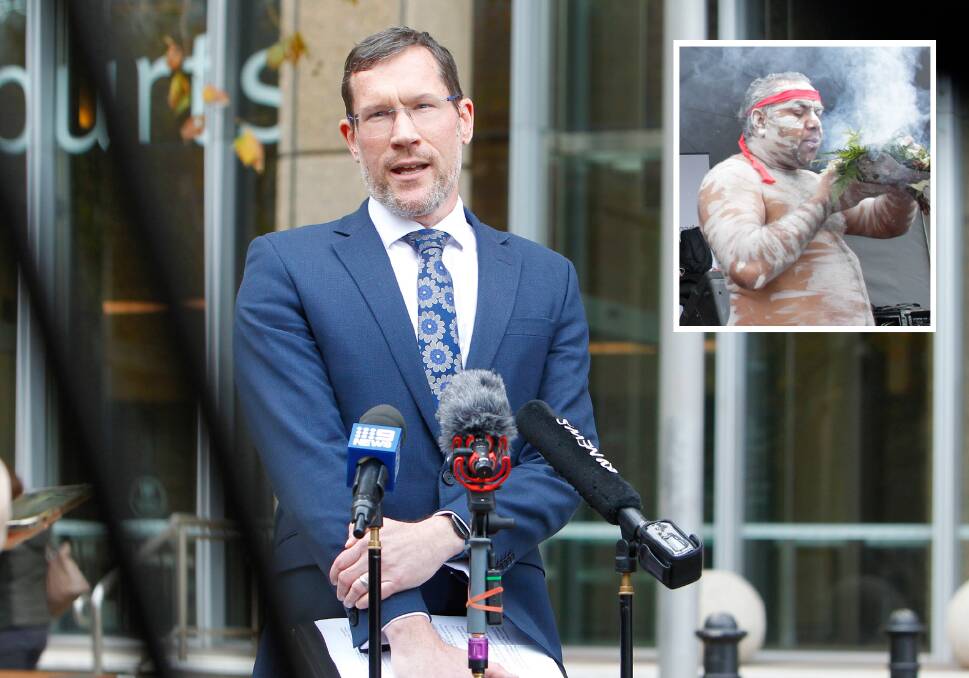
Wreck Bay man Joe Brown-McLeod called the settlement amount "ridiculous", saying no amount of money could make up for the cultural practices lost to perfluoroalkyl and polyfluoroalkyl (PFAS) chemicals - including hunting for abalone and lobsters in Mary Creek.
"The suffering and pain our community has gone through is impossible to quantify," Mr Brown-McLeod said.
"There's certain areas we can't even go to since they've used that product. We can't take our children to these special places anymore in fear of them being contaminated.
"I don't believe that amount is sufficient enough to be divided up between 700 members."
The class action
The settlement will result in $17 million compensation to the community, with $5 million going to administration and legal costs for those impacted by the use of PFAS, the court heard.
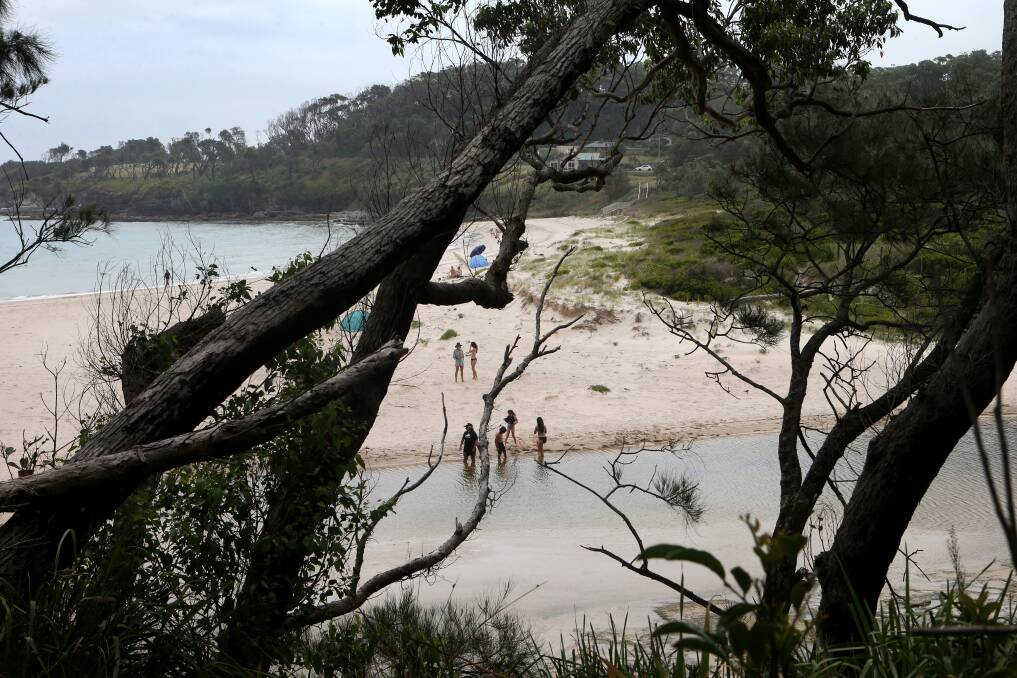
The class action was brought by the Wreck Bay Aboriginal Community Council in 2021 and represented residents living near the HMAS Creswell and Jervis Bay Range Facility bases. It also represented those who use the land for traditional or cultural purposes.
The ADF investigated the defence sites in 2017, with the results detecting the toxic firefighting chemical in the the surface water, groundwater and sediment surrounding the bases. PFAS has been used on those facilities since the 1970s.
Speaking outside the court, Shine Lawyers joint head of class actions Craig Allsopp said it was a "bittersweet victory" for the Wreck Bay community, who will be grappling with the impacts of PFAS for years to come.
"Importantly, they've lost their connection to the country by reason of the contamination and monetary compensation will never be adequate to repair that kind of loss," Mr Allsopp said.
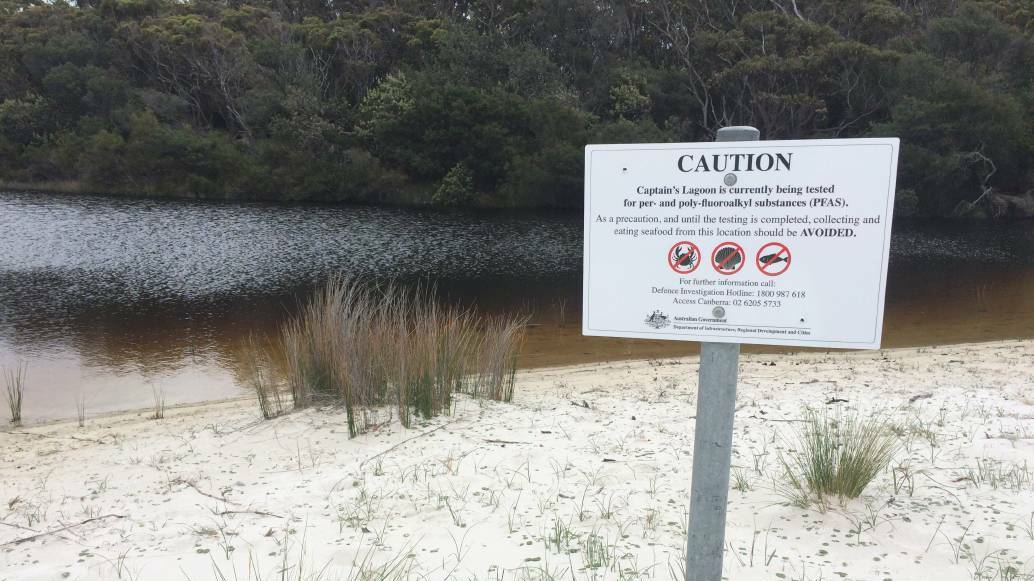
The settlement is to compensate those impacted by PFAS contamination which has negatively impacted properties, land values, livelihoods and the cultural practices of the Wreck Bay community.
'Too many that have already passed on'
Justice Michael Lee made clear that the settlement was not to compensate for personal injury.
Mr Allsopp said his firm was looking into the possibility of pursuing a lawsuit on this basis, on behalf of those claiming adverse health effects - including cancer and heart attacks - brought on by exposure to PFAS.
"Every community I've been in where there's been PFAS contamination, the health issues and personal injury claims have been top priority," he said.
Mr Allsop noted his awareness of the Australian government's advice that health impacts of PFAS have "not been shown to cause disease".
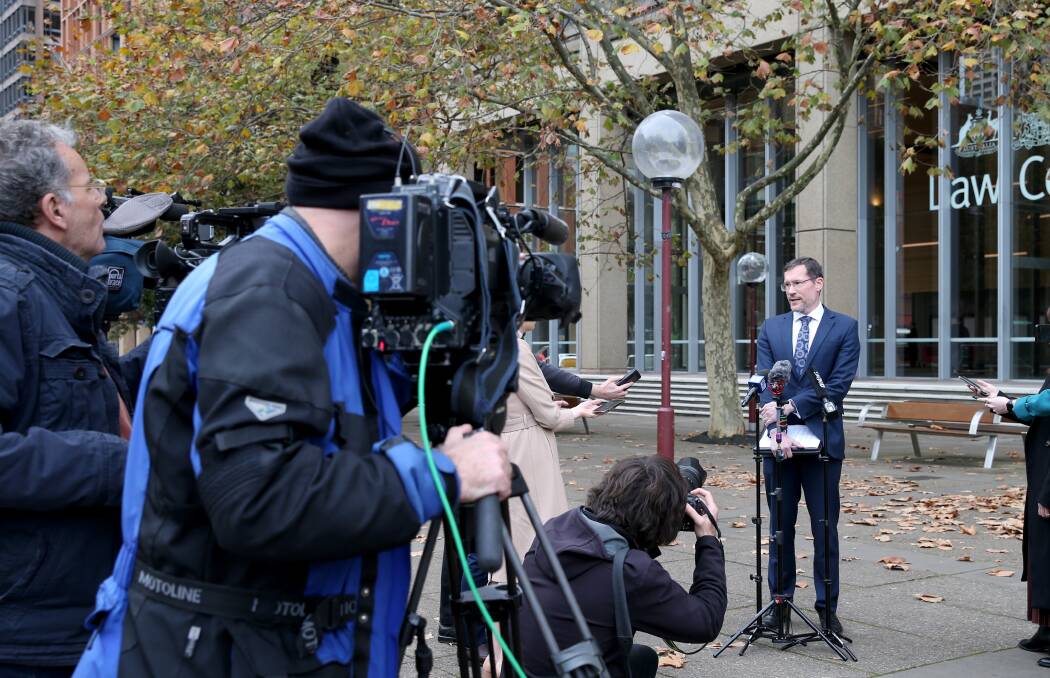
However Mr Brown-McLeod, who has lived in Wreck Bay his whole life, believes otherwise. His mother is on dialysis for breast cancer three days a week, and believes the toxic chemical has caused a disproportionate amount of stillbirths.
"There's several members of the community including my mother who has had breast cancer as a result of the poison through the land and the fish," he said.
"There's too many that have already passed on, I've got nephews and cousins that were stillborns that are sitting in the cemetery."
First apology
The federal government gave its first public apology to the Wreck Bay community over the significant loss of cultural practice caused by PFAS in February.
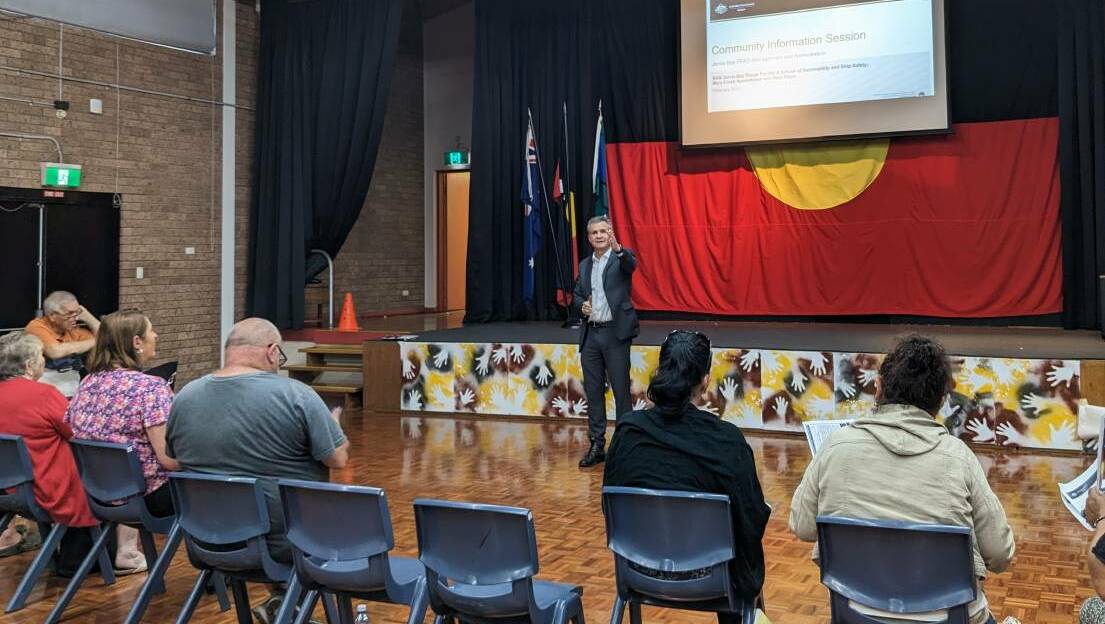
Assistant Defence Minister Matt Thistlethwaite announced that defence established a remediation action plan to reduce to divert contamination from sacred water.
"Hopefully over time, the water treatment facility will reduce that contamination that is flowing down the hill into the creeks," Mr Thistlethwaite told the Mercury.
He added the federal government will soon launch an independent review into defence bases around the country, and will also fund further research to determine whether there are proven links between PFAS and medical conditions.
"I'm not a medical expert so I can't make a conclusion whether there is a link to PFAS and a medical condition," Mr Thistlethwaite said.
"But what I can say is that I want defence to act as quickly as possible to remove that source and remove the risk in the future."
Last week, the federal government agreed to pay $132.7 million to settle a class action, launched by seven communities - including Wagga Wagga and Wodonga - impacted by the toxic foam used on defence bases.
Shine Lawyers alleged the Commonwealth negligently allowed toxic runoff from HMAS Creswell and the Jervis Bay Range Facility to leach into the Wreck Bay community.
The Federal Court will determine whether the class action settlement amount is fair and reasonable in June. There will be a further hearing to determine how the funds will be distributed.
Our news app has had a makeover, making it faster and giving you access to even more great content. Download The Illawarra Mercury news app in the Apple Store and Google Play.


